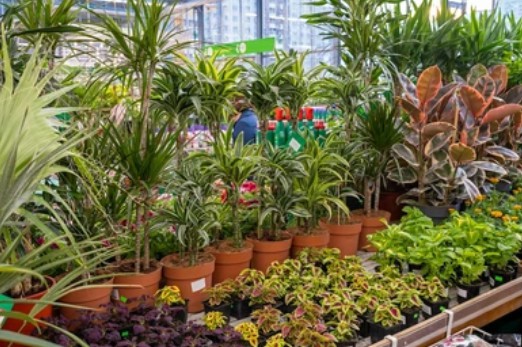The acceptance of an ornamental crop depends on the aesthetic value, the number of flowers, the combination of shapes and sizes, as well as the color, fragrance, and uniformity of flowering of these flowers. The shape, color, and pattern of the plant are also important. Vase life and preservation quality usually depends on whether these characteristics are maintained at certain values and on the presence of pests and diseases. The flower industry is a part of modern agriculture. With the rapid economic development and the improvement of people's living standards, people's demand for flowers is increasing, and high-grade exotic flowers with excellent quality and resistance have a broad market prospect. There are many reasons for quality loss. The quality of ornamental crops is realized in the field or greenhouse by selecting the best genotypes of the species of interest and the best cultivation conditions.

We provide transient and genetically stabilized transformation services for many flowering plants, including Chrysanthemum Morifolium, Petunia Hybrida, Rhododendron Simsii, etc. Our genetic engineering technology has opened a new avenue for floral improvement, not only in terms of improving ornamental plant flower color, shape, fragrance, and resistance, but also in terms of flower shape and grams to extend vase life and bloom duration. Lifeasible offers sensory, physical, and chemical testing methods to identify the quality of ornamental plants and provide a basis for plant trait identification.
We evaluate the quality of ornamental plants by a variety of criteria, including tolerance to biotic and abiotic stresses, developmental potential, and aesthetic quality. Of these, aesthetic quality is specific to ornamental plants and requires objective measurement. We offer three methods for measuring aesthetic quality:
Identification items mainly include the number of flowers per stalk (e.g., cut flowers), flower shape, flower color, flower size, odor, stem length, stem hardness, etc. In addition to ornamental traits, some also need to identify its fast-growing, resistant, medicinal, drinking, and other incidental economic traits. For example, rose varieties also need to be identified for their flower yield, essential oil content, and chemical composition.
Lifeasible is committed to ornamental plant quality identification services to assess the acceptability of ornamental crops. If you are interested in our services, please contact us for the best solutions to identify ornamental plant quality.
Lifeasible has established a one-stop service platform for plants. In addition to obtaining customized solutions for plant genetic engineering, customers can also conduct follow-up analysis and research on plants through our analysis platform. The analytical services we provide include but are not limited to the following:
Get Latest Lifeasible News and Updates Directly to Your Inbox
Adaptive Evolutionary Mechanism of Plants
February 28, 2025
Unraveling Cotton Development: Insights from Multi-Omics Studies
February 27, 2025